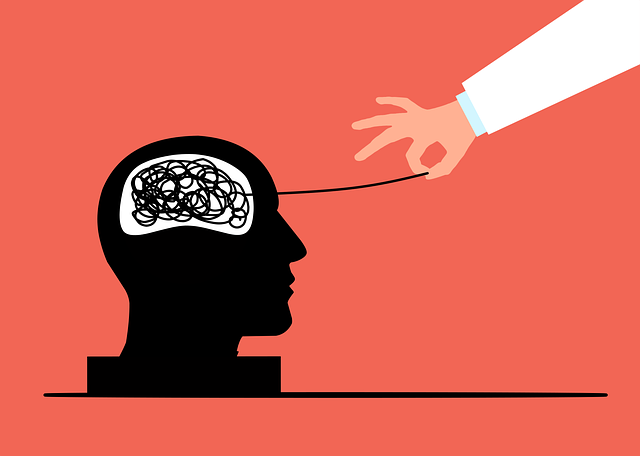Longmont Major Life Transitions Therapy focuses on Emotional Intelligence (EQ) as a key to navigating challenging times and life changes. EQ empowers individuals to recognize, understand, and manage their emotions, fostering healthier relationships, better conflict resolution, and self-care practices for improved mental health. The therapy guides clients through identifying emotions, effective communication, social skills training, crisis intervention, and mindfulness techniques to build inner strength, resilience, and adaptability during major transitions like job shifts, relationship changes, or personal loss. By cultivating self-awareness and integrating EQ strategies, individuals gain better stress control, enhanced emotional well-being, and improved life satisfaction.
Emotional intelligence (EI) is a powerful tool for navigating life’s challenges, from everyday interactions to major life transitions. In this comprehensive guide, we explore the building blocks of EI, empowering you to thrive. Learn how understanding and managing your emotions, coupled with effective communication and self-awareness, can lead to enhanced well-being. Discover strategies tailored for Longmont Major Life Transitions Therapy, fostering resilience and personal growth.
- Understanding Emotional Intelligence and Its Impact on Well-being
- Identifying Emotions: The Foundation of Emotional Intelligence
- Effective Communication Strategies for Enhanced Empathy
- Managing Stress and Regulating Emotions during Life Transitions
- Practicing Self-awareness and Mindfulness Techniques for Personal Growth
Understanding Emotional Intelligence and Its Impact on Well-being

Emotional intelligence (EQ) is a vital aspect of our overall well-being, especially during challenging times and major life transitions, which are common in Longmont Major Life Transitions Therapy. It involves recognizing, understanding, and managing one’s own emotions, as well as empathizing with and responding appropriately to the emotions of others.
High EQ can significantly impact personal growth and success by fostering healthier relationships, improving conflict resolution techniques, and enhancing self-care practices. Individuals with strong emotional intelligence are better equipped to navigate through stressful situations, showing more resilience and adaptability. This ability to understand and manage emotions is crucial for maintaining mental health and overall life satisfaction.
Identifying Emotions: The Foundation of Emotional Intelligence

Identifying emotions is the cornerstone of building emotional intelligence. It’s a fundamental step in understanding yourself and others, especially during major life transitions that can heighten stress and challenge our emotional regulation abilities. In Longmont Major Life Transitions Therapy, professionals guide individuals through this process, helping them recognize and label feelings effectively. By developing inner strength through emotional awareness, people can better navigate the complexities of life’s changes.
This ability to identify emotions is crucial for managing stress and cultivating resilience. It allows individuals to understand triggers, anticipate responses, and implement strategies for emotional regulation. Through this journey of self-discovery, one gains a deeper understanding of their unique emotional landscape, paving the way for personal growth and enhanced relationships.
Effective Communication Strategies for Enhanced Empathy

Effective communication is a cornerstone of emotional intelligence and plays a pivotal role in enhancing empathy—a key aspect of Longmont Major Life Transitions Therapy. When individuals engage in open, honest, and clear dialogue, they create a safe space for expressing feelings and experiences, fostering deeper connections. This process involves active listening, where one pays close attention to both verbal and non-verbal cues, allowing for a more nuanced understanding of another person’s perspective.
Furthermore, practicing empathy encourages individuals to step into someone else’s shoes, promoting emotional well-being promotion techniques and contributing to mental illness stigma reduction efforts. Through social skills training, people can learn to navigate conversations effectively, ensuring that their words and actions foster a supportive environment. This, in turn, strengthens relationships, enhances collaboration, and promotes healthier interactions during challenging life transitions.
Managing Stress and Regulating Emotions during Life Transitions

Navigating through major life transitions can be a challenging journey, often leading to heightened stress and emotional turmoil. During such times, individuals may struggle with regulating their emotions, which is where Longmont Major Life Transitions Therapy steps in as a valuable resource. This form of therapy equips people with essential tools for managing stress and cultivating inner strength.
By addressing the unique challenges presented by life changes, whether it’s a job shift, relationship transition, or personal loss, therapists provide crisis intervention guidance. They help clients understand and process their emotions, fostering resilience and adaptability. Through various techniques, individuals can learn to recognize triggers, develop healthy coping mechanisms, and build emotional intelligence—all of which contribute to better stress management and overall well-being.
Practicing Self-awareness and Mindfulness Techniques for Personal Growth

Emotional intelligence building begins with cultivating self-awareness—a cornerstone of Longmont Major Life Transitions Therapy. By taking time to observe and understand your emotions, you gain valuable insights into what drives you and how you respond in different situations. This self-reflection is crucial for personal growth, enabling you to make conscious decisions rather than reacting impulsively. Mindfulness techniques play a significant role in enhancing this awareness. Practicing mindfulness helps in staying present, focusing on the here and now, thereby reducing anxiety and improving mood management. It’s not just about calming the mind but also about developing a deeper connection with your feelings and thoughts, fostering a healthier relationship with yourself.
In today’s fast-paced world, incorporating these practices into daily routines can be transformative. Public awareness campaigns that emphasize mental health development often highlight the benefits of such techniques for overall well-being. By integrating mindfulness and self-awareness exercises, individuals can effectively manage stress, reduce symptoms of anxiety, and enhance their ability to navigate life’s transitions smoothly. This journey of personal growth is not just about achieving balance but also about cultivating resilience, ensuring better emotional intelligence in both personal and professional spheres.
Emotional intelligence is a powerful tool for navigating life’s challenges, especially during major life transitions. By understanding and managing our emotions, we can enhance our relationships, improve communication, and foster personal growth. Through identifying and expressing emotions effectively, practicing mindfulness, and adopting healthy stress management strategies, individuals in Longmont Major Life Transitions Therapy can revolutionize their emotional well-being. These practices empower us to embrace change, build resilience, and lead more fulfilling lives.














